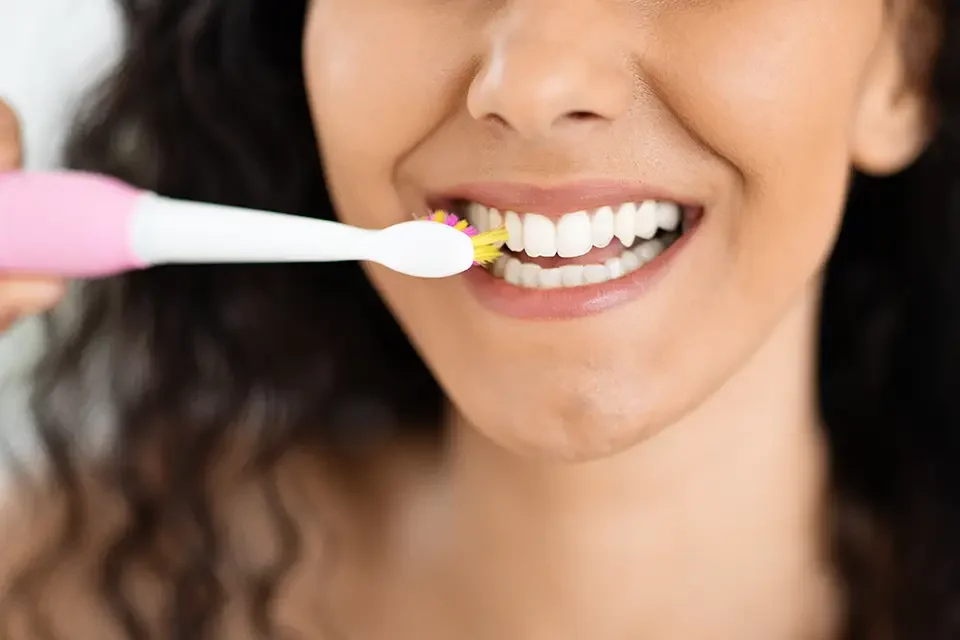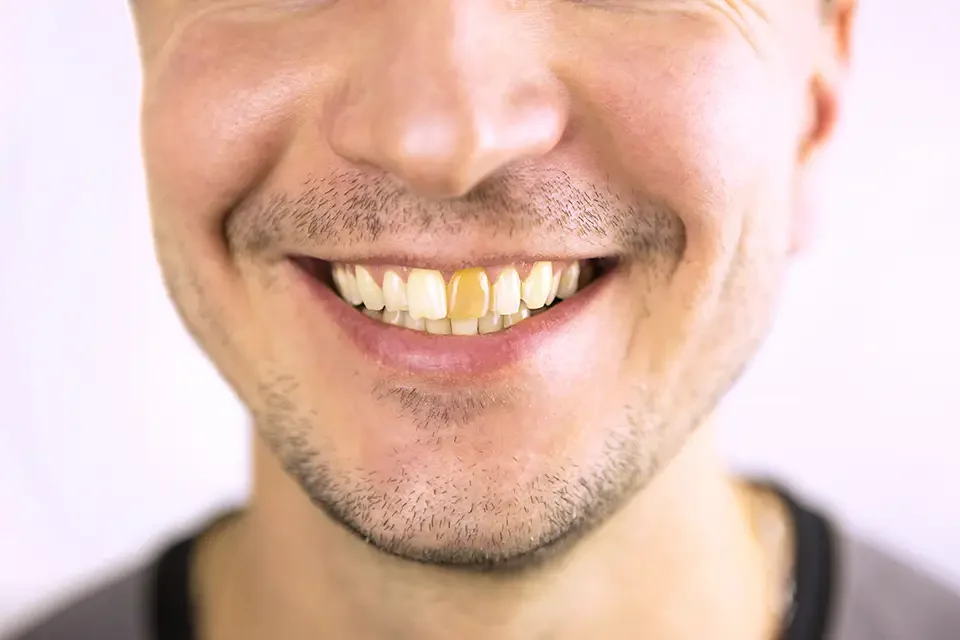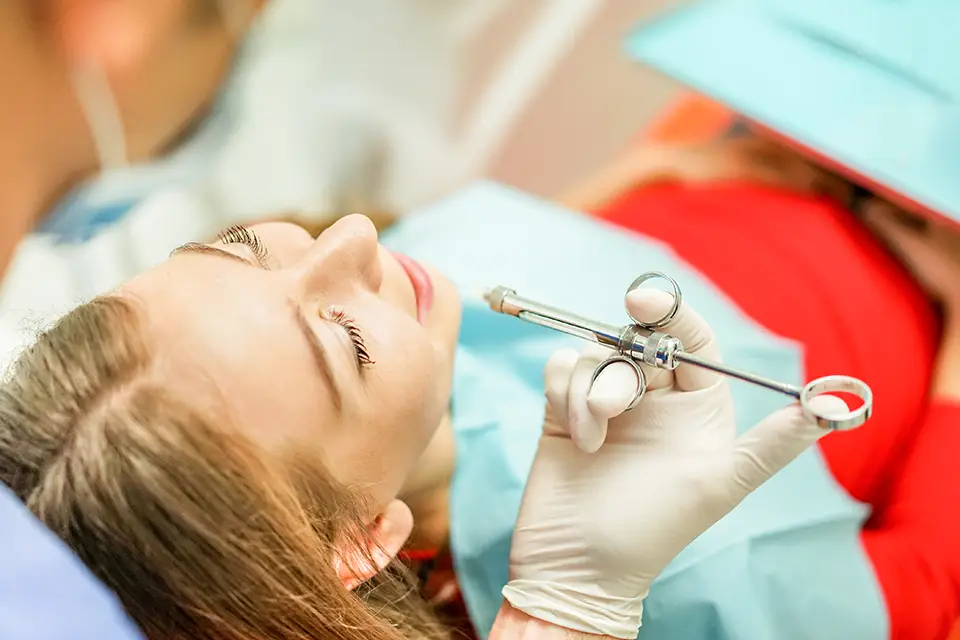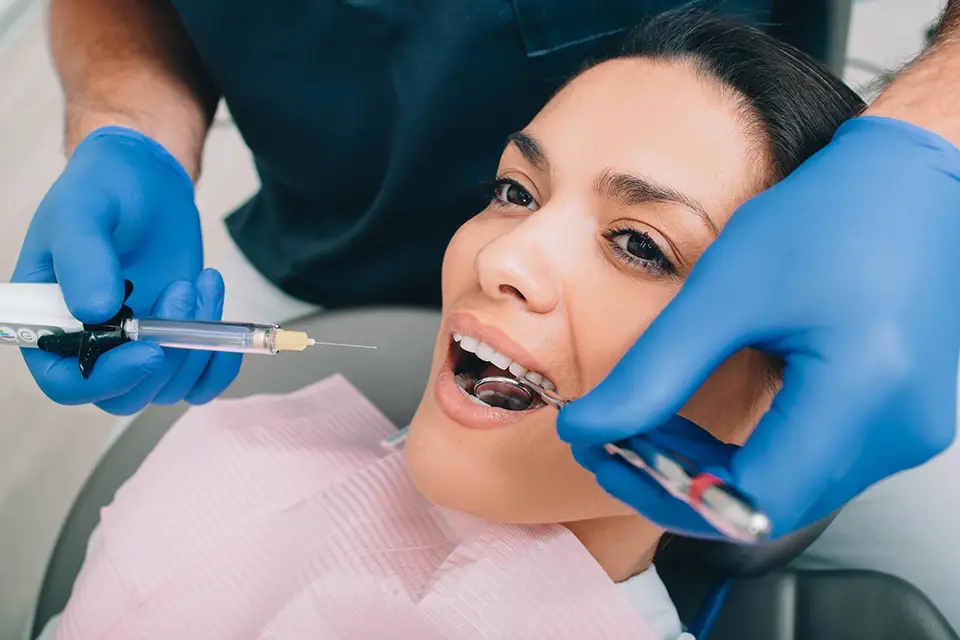If you’re brushing twice a day and still wondering, “Why do my teeth turn yellow even if I brush daily?”, you’re not alone. Many patients at Sunshine Dentistry ask a version of this same question—”Why do my teeth turn yellow even if I brush daily?”—especially when they’ve been diligent but notice their smile looking duller over time. Brushing matters, but it isn’t the whole story. Diet, enamel thickness, habits, and time all play a role. The good news: with the right plan (including professional teeth whitening when appropriate), you can correct colour now and maintain it longer.
Why Do My Teeth Turn Yellow Even If I Brush Daily? The Short Clinical Answer
Tooth colour is influenced by two layers: enamel (the outer, naturally white layer) and dentin (the inner, more yellow layer). Brushing removes plaque and some surface stains, but it doesn’t change dentin—and enamel can thin as we age, allowing the warmer dentin tone to show through. So even the most diligent brusher can still ask, “Why do my teeth turn yellow even if I brush daily?” because brushing can’t reverse every type of stain or structural change.
Intrinsic vs. Extrinsic Staining (And Why Your Routine May Not Be Enough)
- Extrinsic stains sit on the surface—think coffee, tea, red wine, curries, tobacco. Good hygiene and polishing help.
- Intrinsic stains live within the tooth: age-related dentin darkening, certain medications, and trauma. Toothpaste can’t access these; professional whitening or restorative options are needed.
Understanding the difference reframes the question, “Why do my teeth turn yellow even if I brush daily?”—you may be facing internal colour shifts, not just surface build-up.

Why Do My Teeth Turn Yellow Even If I Brush Daily? Everyday Habits That Quietly Darken Teeth
Small, repeated exposures add up. If you’re asking, “Why do my teeth turn yellow even if I brush daily?”, consider these routine culprits:
- Sip habits: Nursing coffee or tea all morning keeps pigments in contact with enamel.
- Acid first, pigment second: Acidic drinks (sodas, energy drinks, citrus) soften enamel temporarily, making stains “stick” more.
- Dry mouth: Low saliva (medications, mouth-breathing, dehydration) reduces natural rinsing.
- Abrasive pastes: Over-scrubbing with gritty toothpaste can wear enamel over time, making the underlying dentin more visible.
Simple tweaks—shorter drink windows, water rinses, gentler pastes—often improve outcomes for patients who keep asking, “Why do my teeth turn yellow even if I brush daily?”
Enamel Thickness, Ageing, and Genetics
Enamel is as individual as a fingerprint. Some people naturally have thinner enamel; others see gradual thinning with age, clenching, or acid wear. As enamel thins, the dentin’s colour shows through—another reason you might think, “Why do my teeth turn yellow even if I brush daily?” Strengthening habits (fluoride, nightguards where needed, avoiding constant acids) protects what you have and supports better whitening results later.
Why Do My Teeth Turn Yellow Even If I Brush Daily? Professional Teeth Whitening
When brushing can’t tackle the issue, supervised whitening addresses the intrinsic colour. Patients who ask “Why do my teeth turn yellow even if I brush daily?” often do well with:
- In-office whitening: A powerful, carefully controlled lift in a single visit.
- Custom trays at home: A steady, customisable program that’s easy to refresh seasonally.
- Combination approach: In-office jumpstart + trays for maintenance gives reliable brightness and longer hold.
Whitening doesn’t fix every problem. For deep internal stains, white-spot lesions, or enamel defects, conservative bonding or veneers may be the more predictable path. The key is choosing the least invasive option that meets your goals.
Post-Whitening: The 48-Hour Window That Protects Results
Right after whitening, enamel is more receptive to colour. To keep gains—and avoid circling back to “Why do my teeth turn yellow even if I brush daily?”—treat the first two days like a “white-shirt” diet:
- Pale foods (rice, yogurt, chicken, bananas).
- Avoid dark drinks/sauces; use a straw if needed.
- Rinse with water after meals; brush gently with a low-abrasive paste.
- Skip smoking/vaping during this period.
Those two days make a surprisingly big difference in how long your new shade lasts.
Why Do My Teeth Turn Yellow Even If I Brush Daily? Maintenance That Actually Works
A bright smile doesn’t require a restrictive lifestyle. To stay ahead of “Why do my teeth turn yellow even if I brush daily?”:
- Bundle pigments: Enjoy coffee/tea in a shorter window; follow with water.
- Schedule polish: Professional cleanings lift early stains before they bond.
- Use gentler pastes: Look for low-abrasive formulas; focus on time and technique, not force.
- Hydrate and protect: Saliva is nature’s rinse; a nightguard protects enamel if you clench.
- Top-ups with trays: A few nights of gel every few months keeps brightness steady.
Small, consistent steps beat one big fix followed by old habits.

When Whitening Isn't the Whole Answer
If your question—”Why do my teeth turn yellow even if I brush daily?”—stems from medication staining, developmental enamel changes, or prior trauma, your plan might include:
- Microabrasion: For superficial defects/white lines.
- Internal bleaching: For root-treated teeth that darkened from the inside.
- Conservative bonding or veneers: When colour and shape need coordinated refinement.
We’ll start as conservatively as possible and escalate only if needed.
Final Word
If you keep asking, “Why do my teeth turn yellow even if I brush daily?”, you’re not doing anything wrong—you’re just up against factors brushing can’t solve alone. At Sunshine Dentistry in Richmond Hill, we separate surface stain from internal colour, map a whitening plan that fits your comfort and calendar, and show you how to maintain results without strict rules. Ready to turn the question “Why do my teeth turn yellow even if I brush daily?” into a plan? Book a consultation, and let’s build a brighter smile that actually lasts.
FAQs — Why Do My Teeth Turn Yellow Even If I Brush Daily?
If I brush more often, will that stop yellowing?
More brushing helps only with surface stain. Over-brushing—especially with abrasive pastes—can thin enamel, making yellow dentin more visible.
Do whitening toothpastes really work?
They help control surface stains but don’t change internal colour. They’re maintenance tools, not replacements for supervised whitening.
How long does professional whitening last?
With smart habits and periodic tray top-ups, many patients enjoy 6–12 months before a brief refresh. Diet and hygiene matter more than brand names.
What if I have sensitive teeth?
Use lower-strength gels, alternate-day protocols, and desensitising pastes (potassium nitrate, stannous fluoride). Comfort first—done right, sensitivity is temporary.
Can I whiten if I have bonding or crowns?
Whitening does not change existing restorations. We often whiten first, then match new bonding/crowns to the lighter shade.



